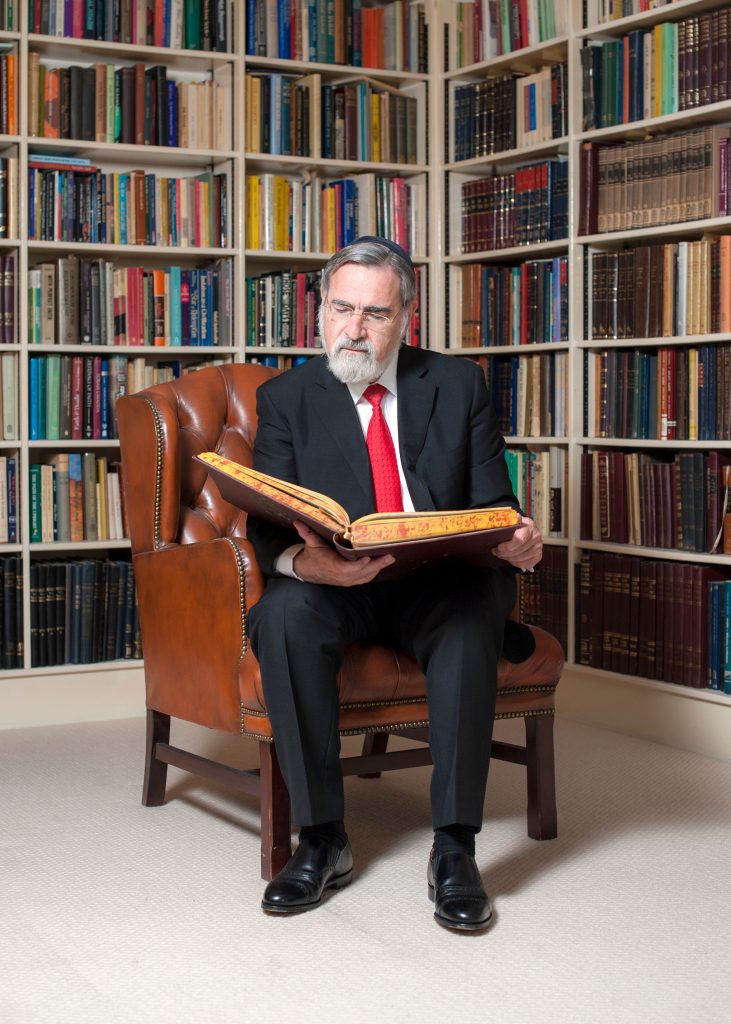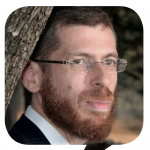Rabbi Sacks on Contemporary Issues
By Rabbi Yehoshua Pfeffer
In his reflection on the future of British society and the dangers facing liberal democracies, Rabbi Jonathan Sacks, zt”l, commented that while forever tempting, the flight from responsibility into victimhood is negative and destructive: “[I]t robs us of trust in the world, it leads us to see fate as a conspiracy directed against us.”1 In tribute to his great and unique leadership, I would like to elaborate on this position.
The victim mentality so prevalent in Western society fuses together two ills that Rabbi Sacks fought against throughout his life. One is the rejection of personal responsibility; the second is the negation of personal relationship.
Personal responsibility was for Rabbi Sacks not just a defining element of the good life, but even of the religious life. “Behind the ethic of responsibility,” he writes, “is the daring idea that more than we have faith in God, God has faith in us.”2 To reject personal responsibility is to reject the Divine calling first heard by Avraham Avinu. Leaving one’s comfort zone requires courage, but without it we cannot fulfill our mission of “becoming co-authors with God of the world that ought to be.”3 And while taking responsibility takes many forms, it begins with the personal relationships that form the fabric of a good society.
Leaving one’s comfort zone requires courage, but without it we cannot fulfill our mission of “becoming co-authors with God of the world that ought to be.”
“The world was built upon chesed” (Tehillim 89:3), which is intrinsically personal: “We cannot care for the sick, bring comfort to the distressed or welcome a visitor impersonally.”4 Such activities cannot be achieved any other way. Yet by losing trust in the world, the victim loses faith in personal relationships and claims instead the recourse of universal justice that (in Rabbis Sacks’ words) “demands disengagement.”
For Rabbi Sacks a meaningful life is one that “responds”: “In the theological sense it means that God is the question to which our lives are an answer.”5 The world is indeed replete with questions—questions of suffering and tragedy, of evil and discrimination—and Judaism’s answer is the human partnership with God. It is here that victimhood fails, in seeking to efface the question rather than provide an answer, in negating personal choice when the Torah teaches that we can all choose life. “The best way of curing a victim,” he writes, “is to help him cease to think of himself as a victim.” It is a matter of choice.
Rabbi Sacks was a true believer in tikkun olam, “the recognition that the world does need repair, rather than Stoic acceptance of ascetic denial.”6 Yet, he was far from the “social justice” often identified (or conflated) with the term. For him, tikkun olam begins with personal, communal and national responsibility. “Victims,” he writes, “want the world to change, forgetting that it may be they who have to change.”7 Before anything else, we need to change ourselves, translating Divine calling into the language of deed. If enough of us succeed in doing so and inspire others to follow suit—as Rabbi Sacks did for many thousands—then our world will surely become a less fractured place.
Notes
1. The Home We Build Together: (New York, 2007), 62.
2. To Heal a Fractured World: The Ethics of Responsibility (New York, 2007), 12.
3. To Heal, 273.
4. To Heal, 51.
5. The Great Partnership: Science, Religion and the Search for Meaning (New York, 2014), 37.
6. To Heal, 81.
7. Future Tense: Jews, Judaism and Israel in the Twenty-First Century (New York, 2012), 9.
Rabbi Yehoshua Pfeffer is head of the Chareidi Israel division at the Tikvah Fund, running a variety of programs and projects that cater to members of the Chareidi and Religious Zionist communities. He is also rabbi of the Ohr Chadash community in Ramot, Jerusalem.
 Cancel Culture and Political Toxicity
Cancel Culture and Political Toxicity
By Rabbi Shaul Robinson
The loss of Rabbi Lord Jonathan Sacks in November 2020 robbed the world not only of one of its most cherished religious leaders, but also one of its most profound social commentators. Confidant and friend of princes and politicians, Rabbi Sacks returned time and time again to the issue of the state of our democracy and political culture.
In what would turn out to be one of his last media interviews, he reflected: “I have written I don’t know how many books about politics. And yet I have never, ever, ever taken a party political stand—and not one member of my family, including Elaine, with whom I’ve just celebrated a golden wedding just a couple of weeks ago—knows how I vote.”
But if Rabbi Sacks was careful to conceal his personal political preferences, he was anything but reticent in commenting on our political system. He was that rarest of religious leaders—the prophet carrying dire warnings of crises and trouble on the horizon—but one people actually wanted to listen to.
Certainly Rabbi Sacks lamented the rise of political extremism on the left and the right and the toxicity of contemporary politics. In one of his most magnificent derashot—his pre-Selichot address the year before he died, he chose to focus on the danger of the “cancel culture.” He warned of the dangers of creating a society that allowed people to be instantly “excommunicated” for statements—often made years ago or misunderstood, deemed to be inappropriate. But what concerned him most about cancel culture was his warning that “in an unforgiving culture, the people who survive and thrive are the people without shame. Have a look at who is powerful in the world today. It is the people without shame that are the only people who thrive in a world without forgiveness.”
Perhaps the strongest thread that runs through his many books that deal with politics, written over three decades, is his belief that what has led to a breakdown in civility and a terrifying toxicity in public discourse was the loss of a sense of a common purpose. “We need to reinvigorate the sense of the common good. Society is where we come together collectively what none of us can do alone . . . It is the realm in which all of us is more important than any of us.” These words come from his 2007 book The Home We Build Together: Recreating Society, a remarkable book for being written by a serving chief rabbi but addressed to a non-Jewish audience discussing how to create a civil society. Even more remarkable was the fact that Gordon Brown, who was, at the time, shortly to become the prime minister of the United Kingdom, wrote a foreword for the book.
He was that rarest of religious leaders—the prophet carrying dire warnings of crises and trouble on the horizon—but one people actually wanted to listen to.
Rabbi Sacks built his life’s work on demonstrating that the core beliefs and texts of Judaism contained truths that can educate and ennoble all of society. Prime Minister Tony Blair eulogized Rabbi Sacks for showing him how the narratives of Tanach—involving Moshe Rabbeinu, David HaMelech and many more—were not mere “stories” but profound treatments of leadership, hope, struggle and redemption. “Through that he taught me how the wretched weakness of society is so clear when absent from God, and when united with God that extraordinary potential for human achievement.”
As a pulpit rabbi, I was almost immensely proud whenever I was able to welcome Rabbi Sacks to my shul—his peerless eloquence and erudition inspired and drew even the cynic and skeptics in the audience closer to Judaism. But watching him being received with similar rapture by non-Jewish audiences made me even prouder. In 2017 Rabbi Sacks was invited to present at the official Ted Talks conference. His talk has been viewed on YouTube over 2 million times. In a masterful presentation, Rabbi Sacks traced the growth of extremism and hyper-partisanship in politics to a culture that encourages us to worship the self over the collective.
I think future anthropologists will take a look at the books we read on self-help, self-realization, self-esteem. They’ll look at the way we talk about morality as being true to oneself, the way we talk about politics as a matter of individual rights. And I think they’ll conclude that what we worship in our time is the self, the me, the “I.” The antidote to this? A reassertion of the “We.”
Do you know something? My favorite phrase in all of politics, very American phrase, is: “We the people.” Because it says that we all share collective responsibility for our collective future. And that’s how things really are and should be. . . . when we move from the politics of me to the politics of all of us together, we rediscover those beautiful, counterintuitive truths: that a nation is strong when it cares for the weak, that it becomes rich when it cares for the poor, it becomes invulnerable when it cares about the vulnerable. That is what makes great nations. To a prolonged standing ovation, Rabbi Sacks concluded that talk on politics and leadership in a way that only he could—by addressing the spiritual needs of every individual present.
So here is my simple suggestion. It might just change your life, and it might just help to begin to change the world. Do a search and replace operation on the text of your mind, and wherever you encounter the word “self,” substitute the word “other.” So instead of self-help, other-help; instead of self-esteem, other-esteem. And if you do that, you will begin to feel the power of what for me is one of the most moving sentences in all of religious literature. “Though I walk through the valley of the shadow of death, I will fear no evil, for You are with me.” We can face any future without fear so long as we know we will not face it alone.
Rabbi Shaul Robinson is rav of NY’s Lincoln Square Synagogue.
By Dr. Erica Brown
In Morality: Restoring the Common Good in Dividing Times, the book he published only months before he died, Rabbi Jonathan Sacks analyzes the breakdown of large societal and economic structures that support the pursuit of a virtuous life: one’s community, one’s country and one’s religion. These enable individuals to overcome anomie, contribute productively to fighting injustice and live generously. Rabbi Sacks characteristically marshals philosophers, economists and sociologists we recognize from his previous writings—Hobbes, Locke, Smith, MacIntyre, Taylor, Berger and Turkle, among others—and current polls and research that support his central thesis. He asks his readers in the book’s concluding sentence, “to enhance the structures of our togetherness” that have been “weakened by too much pursuit of self.”1
Technological advances and our indulgence for self-help literature privilege the “I” over the “we.” Identity politics have weakened our capacity to respect and dignify those we other, in the ironic attempt to avoid offense. These contemporary developments further distance people from the relationships most necessary for life satisfaction, meaning and happiness. Rabbi Sacks offers a solution that appears in every one of his books: the covenantal relationship. A quick look through the index of any of his books usually reveals several entries under one word: covenant.
“A covenant creates a moral community,” he writes. “It binds people together in a bond of mutual responsibility and care.”2 At the center of covenant making, in Morality, and in others, is marriage and the family unit, the microcosm for society itself. In marriage, two people create a covenant that changes them with regard to the law but, more importantly, with regard to the emotional commitments each have to the other. They make their partnership more durable through the act of giving. “A covenant is what turns love into law, and law into love.”3 The collapse of marriage, declining birthrates and the rise of single parenting have broken down the togetherness that is a necessary precondition for moral behavior and the place where obligations to others are nurtured.
Marriage is a “small and personal” expression of covenant.4 While covenants like marriage offer the solace and comfort of company, they also make demands of us. “Covenant is a binding commitment, entered into by two or more parties, to work and care for one another while respecting the freedom, integrity and difference of each.”5 Rabbi Sacks uses this same framework to describe the Israelite experience at Sinai. Contracts were a familiar aspect of ancient Near Eastern politics. “They were secular treaties, usually between a strong nation and a weak one. They set out the terms of a relationship. The strong power would protect the weak, in return for which the weak would pledge its loyalty and fealty to the strong.”6 At Sinai, Rabbi Sacks argues, God revolutionized this notion of contract into a covenant, a partnership richer, more enduring and more humanizing: a freely entered partnership between God and people built on trust and law that honors and cultivates the gifts of each.
The collapse of marriage, declining birthrates and the rise of single parenting have broken down the togetherness that is a necessary precondition for moral behavior and the place where obligations to others are nurtured.
Rabbi Sacks repeatedly contrasts the difference between a contract and a covenant in the way relationships function today. In Morality, he describes the fundamental differences: “A contract is a transaction. A covenant is a relationship. A contract is about interests. A covenant is about identity. That is why contracts benefit, but covenants transform.”7 In his earlier controversial book, Dignity of Difference, Rabbi Sacks puts teeth to these differences; a covenant is not limited to “specific conditions and circumstances. It is open-ended and long-lasting. And it is not based on the idea of two individuals, otherwise unconnected, pursuing personal advantage . . .” He concludes with a familiar drumbeat: “It is about the ‘We’ that gives identity to the ‘I.’”8
In Dignity of Difference, Rabbi Sacks explains that covenants are critical in the healthy evolution of a polity to generate cooperation “without the use of economic, political or military powers.”9 In this model, there is no forcing of one party to do the will of the other, securing one’s freedom or humanity at the cost of another. “Covenant is the attempt to create partnership without dominance or submission . . .” Addressing the challenges of multi-culturalism in the United Kingdom in The Home We Build Together, Rabbi Sacks describes what societal covenants achieve: “Those bound by a covenant, voluntarily undertake to share a fate. They choose to link their destinies together. They accept responsibilities to and for one another. Covenants redeem the solitude of the ‘lonely crowd.’”10
When a contract breaks down, the parties freely disengage. Covenants require a longer view, a greater commitment of time and will to maintain unity, especially during disagreements: “To enter into a covenant, like deciding to marry or have a child, is to take a risk, an act of faith in an unknown, unknowable future.”11 Rabbi Sacks believed the only way to distance ourselves from shallow transactional relationships is to take the risk that covenants demand and sanctify our relationships, binding law with love. In these days of political rancor, we need these reminders—and his words—more than ever.
Notes
1. Jonathan Sacks, Morality: Restoring the Common Good in Dividing Times (New York, 2020), 328.
2. Ibid, 313.
3. Radical Then, Radical Now (New York, 2004), 57.
4. Morality, 314.
5. The Home We Build Together (New York, 2007), 51.
6. The Home, 104-105.
7. Morality, 313.
8. The Dignity of Difference (New York, 2002), 202.
9. Ibid, 202.
10. The Home, 142.
11. The Home, 118.
Dr. Erica Brown is an associate professor at The George Washington University and director of its Mayberg Center for Jewish Education and Leadership.
The Jewish Voice in the Public Square
By Dr. Judith Bleich
The nation of Israel “was created as a covenantal people, a light unto the nations.” Upon departing from Egypt they were destined “le’tachlitam [for their goal and purpose], to become capable of being a light unto the nations, to confirm them in knowledge of the Lord of the universe.” Thus wrote, not a prominent exponent of Reform, but Rabbi Naphtali Zevi Yehudah Berlin, the Netziv, head of the famed yeshivah of Volozhin, in his commentary Ha’amek Davar, introduction to Exodus.
Centuries earlier, Rabbi Yehudah Halevi, in his classic exposition of Jewish thought, Kuzari, Part II, section 36, declared, “As the heart is to the body, so is Israel among the nations.” Disproportionate to its size is the function of the heart upon the human organism. Disproportionate to its size is the possible moral influence of Israel upon the nations of the world. But, sadly, the heartbeat of Israel has become muffled and its ethical message stifled. It is as if the detritus of a coarse and violent civilization has caused plaque to accumulate and occlude the throbbing flow of blood from the heart.
It is to the everlasting merit of the late Rabbi Jonathan Sacks, of blessed memory, and to the benefit of all, that he hearkened to the divine imperative and in no small measure provided entrée to Jewish values and authentic lessons of faith to a society parched for spiritual sustenance.
Not every talented individual is privileged to attain a position suitable for expressing his or her talents; not everyone who rises to a position of prominence succeeds in developing its potential to full advantage. The Jewish community was blessed that Rabbi Sacks was appointed as Chief Rabbi of Great Britain’s United Synagogue and that he occupied that post in a fashion that elevated its influence as a beacon of inspiration for global Jewry and for mankind. Even before assuming office, Rabbi Sacks brought to England a cadre of prominent intellectuals, rabbinic scholars and provocative thinkers. As incumbent Chief Rabbi, he set as his principal agenda enhancement of the quality of Jewish day school education and its popularization. Concurrently, he intensified his dedication to transmitting the unadulterated tradition of Sinai.
Beneath the elegant phrases there pulsed a deep seriousness of purpose, an empathy for people, a profound love of Torah and a passion to communicate the devar Hashem.
There rapidly followed what became a cascade of articles and books and a profusion of addresses and lectures, in person and through the media, presented to diverse audiences Jewish and non-Jewish, to British subjects far and wide, to fellow peers in the House of Lords, to communal gatherings throughout the world and, ultimately, to thousands upon thousands of participants online. He was indefatigable. And the words had a powerful impact. It was not simply his marvelous ability to present complex ideas with clarity and directness, his uncanny feel for le mot juste, not only his wit and charm, that captivated readers and listeners. It was an entirely different quality. Beneath the elegant phrases there pulsed a deep seriousness of purpose, an empathy for people, a profound love of Torah and a passion to communicate the devar Hashem. He did not engage in verbal pyrotechnics, dazzle with crystalline aperçus, or entertain with popular platitudes. His were devarim hayotzim min halev, words that emanate from the heart. Directed to the mind and heart, they struck a responsive chord in audiences who sensed in Rabbi Sacks’ written and spoken words something almost akin to those of the great singer, “For the spirit of the Lord spoke in me and His word was on my tongue.”1
In responding to the challenges of our day Rabbi Sacks was not merely au courant but far ahead of intellectual trends. He was constantly reading, studying, assessing new ideas and investigating innovative approaches. He read broadly with a capacious openness but with an eye that was discerning, critical and, when necessary, censorious. He did not shy away from addressing problematic questions nor did he gloss over communal deficiencies. In thoughtful and measured tones, he demonstrated that timeless religious truths can effectively be applied in resolving contemporary dilemmas.
Long ago, Rabbi Samson Raphael Hirsch chided his congregants not to abdicate their duty: “We have become phlegmatic with regard to the spirit of irresponsibility which . . . entangles spirits and hearts. This attitude of laissez-faire governs us2 . . . . [The Sages] knew that the spirit of the era is the spirit of mankind to which we all contribute.”3 Rabbi Sacks likewise propounded an “ethics of responsibility”4 in urging fellow Jews to embrace their role and rise to their destiny.
Remarkable in these times of social turmoil, political corruption and pervasive secularity was his resoundingly positive message with its emphasis on hope and abiding faith. Well did he know that Leonard Cohen’s “You want it darker, We kill the flame”5 was the fitting poem for our dark and fractious historical moment. Yet, characteristically, he pinpointed Cohen’s redemptive Jewish insight, “There is a crack, a crack in everything, That’s how the light gets in.”6 Rabbi Sacks refracted that light. He radiated confidence in the emergence of a loftier society comprised of individuals “with flame of freedom in their souls and light of knowledge in their eyes.”7 His ongoing legacy is the charge to us to fulfill the prophetic vision of a Torah community ever striving to bring about the time “when the earth shall be full of the knowledge of God as the waters cover the sea.”8
Notes
1. II Samuel 23:2.
2. The Collected Writings of Rabbi Samson Raphael Hirsch (New York and Jerusalem, 1984), I, 291-292.
3. Ibid., pp. 295-296.
4. His seminal work, To Heal a Fractured World (London and New York, 2005) is subtitled: The Ethics of Responsibility.
5. “You Want It Darker,” Released September 24, 2016.
6. “Anthem,” Released November 24, 1992.
7. John Addington Symonds, “A Vista: These Things Shall Be,” New and Old: A Volume of Verse (London, 1880), 226.
8. Isaiah 11:9.
Dr. Judith Bleich is Professor of Jewish History at the Graduate School of Jewish Studies, Touro College, New York.
By Smadar Rosensweig
In the late 1980s, my parents Rabbi David Eliach, shlit”a, and Dr. Yaffa Eliach a”h, visited the United Kingdom, and attended the Marble Arch Synagogue on Shabbat, where Rabbi Jonathan Sacks was rabbi. After my father’s concluding Torah blessings, Rabbi Sacks clapped on the bimah, and went on to deliver a short speech about my father’s contribution to worldwide Jewish education and my mother’s transformation of Holocaust commemoration and education by redeeming the human dignity of Holocaust martyrs and survivors and focusing the conversation surrounding the Holocaust on Jewish heroism, faith and human responsibility. Rabbi Sacks explained that he and my mother shared a common vision of teaching universal moral lessons through a unique Jewish prism.
A connective thread throughout Rabbi Sack’s illustrious career as chief rabbi of the United Hebrew Congregations of the Commonwealth and beyond, is his focus on a very anthropocentric, this worldly, action-oriented approach to ethics. In his view, as expressed in his book, To Heal a Fractured World: The Ethics of Responsibility, faith is expressed in deeds, and the unique message that Judaism can teach the world is “its ethics of responsibility, the idea that God invites us to become in the rabbinic phrase, His partners in the work of Creation” (p. 3). In the book, Rabbi Sacks characterizes contemporary culture as excessively self-centered. He suggests that Judaism’s ethical philosophy of compassion that leads to action is the antidote to society’s shortcomings. Throughout all of his vast output, he cites Biblical, midrashic and rabbinic sources while simultaneously interweaving Chassidic tales, personal anecdotes, modern scholarship, psychological insights and literature to create a meaningful tapestry of relevant lessons for the Jewish and world community.
Judaism’s ethical philosophy of compassion that leads to action is the antidote to society’s shortcomings.
One of his most powerful themes is his anthropocentric interpretation of the Bible. He credits this approach to his teacher Rabbi Nahum Rabinovitch and exemplifies it by citing one of his mentor’s insights. Moses was apprehensive at the burning bush and hid his face because he was reticent to truly understand God, because “seeing heaven would desensitize him to earth and cause him to lose his humanity” (p. 23). Rabbi Sacks extrapolates a major cornerstone of his ethical philosophy from this idea. In the aggregate, existence is just, because God is just, but in the day-to-day man is charged with the Divine mission to redress inequity and right injustice precisely by means of the fullness of his humanity. If human beings were endowed with Divine insight, and constantly cognizant of the larger infinite perspective it would impede and preclude their sense of ethical urgency to initiate remedies to society’s ills (p. 27). This insight inspires the core of Rabbi Sack’s Biblical interpretations and ethical lessons. For example, Rabbi Sacks views the early narratives in Genesis as a vehicle to develop humanity’s moral sense (p. 135). God empowers Abraham to challenge Him on the fate of Sodom as a manifestation of His faith in the tikkun olam partnership. Rabbi Sacks exhorts all of humanity to bring God into this world through actions of ethics and morality. We are God’s messengers and partners to fix His presently imperfect world.
Rabbi Sacks was a talented thinker, a gifted orator and a prolific writer who was a true public intellectual. He will be sorely missed but we are comforted that he left a treasure trove of writings to inspire us and future generations to action.
Smadar Rosensweig is an international lecturer in Tanach who is clinical associate professor of Bible and Judaic studies at Stern College for Women, Yeshiva University.
More in this Section:
In Memory of Rabbi Jonathan Sacks by Rabbi Dr. Jacob J. Schacter
Never Was a Failure More Prophetic by Rabbi Dr. Hillel Goldberg




